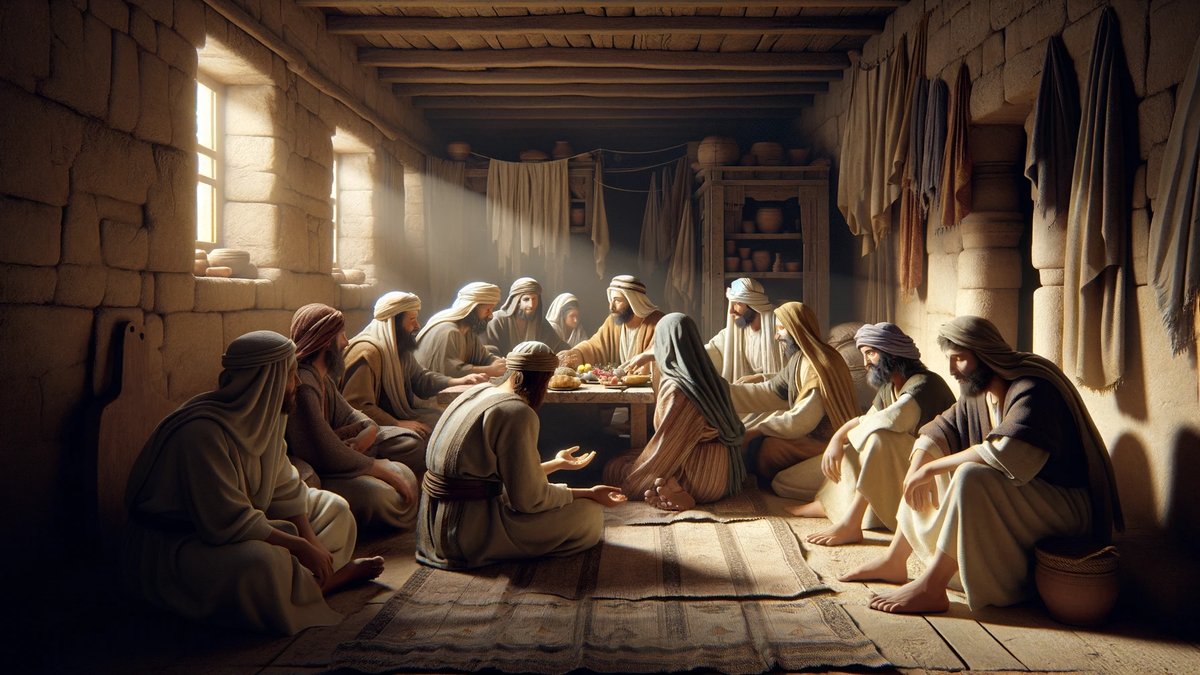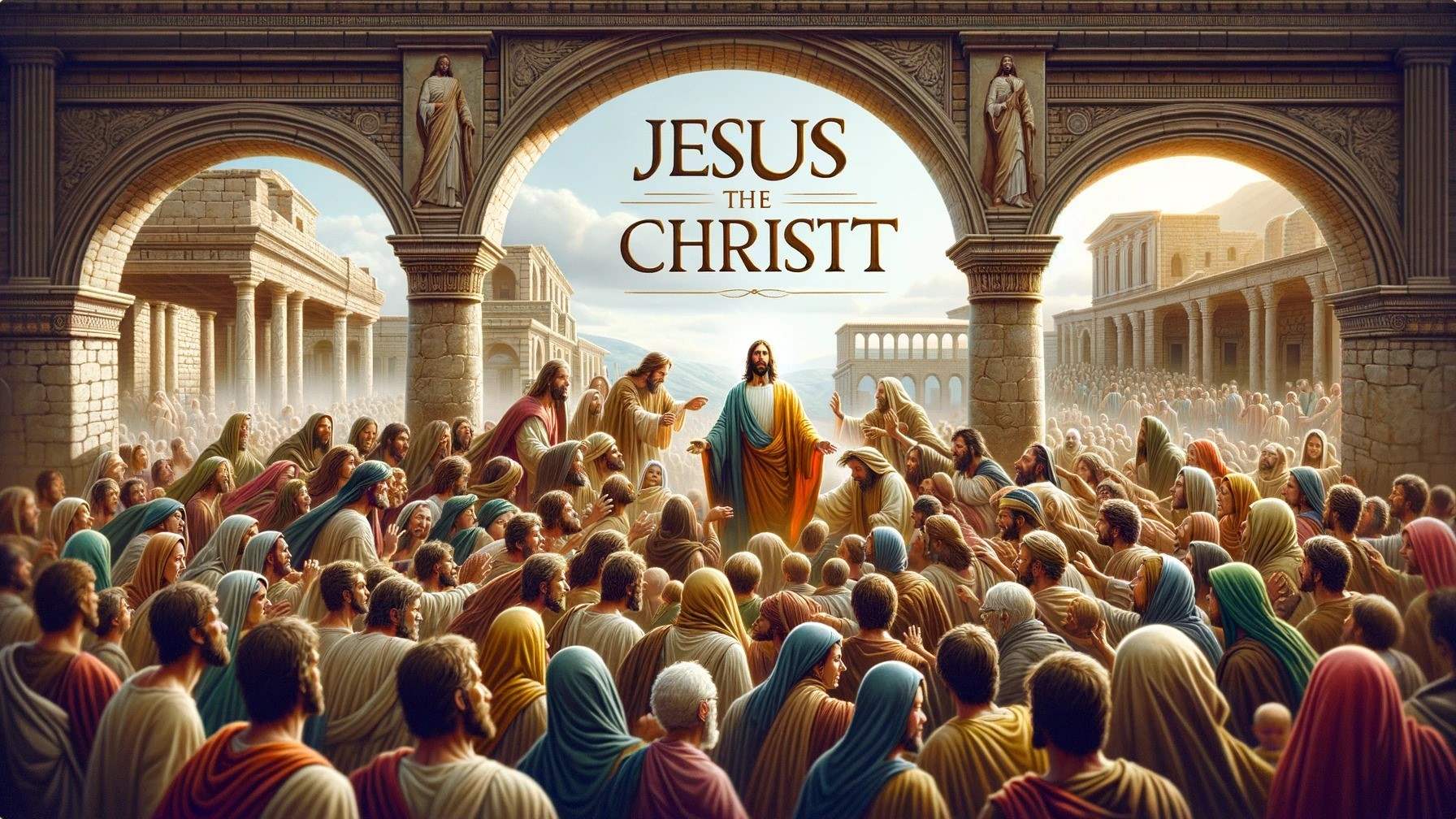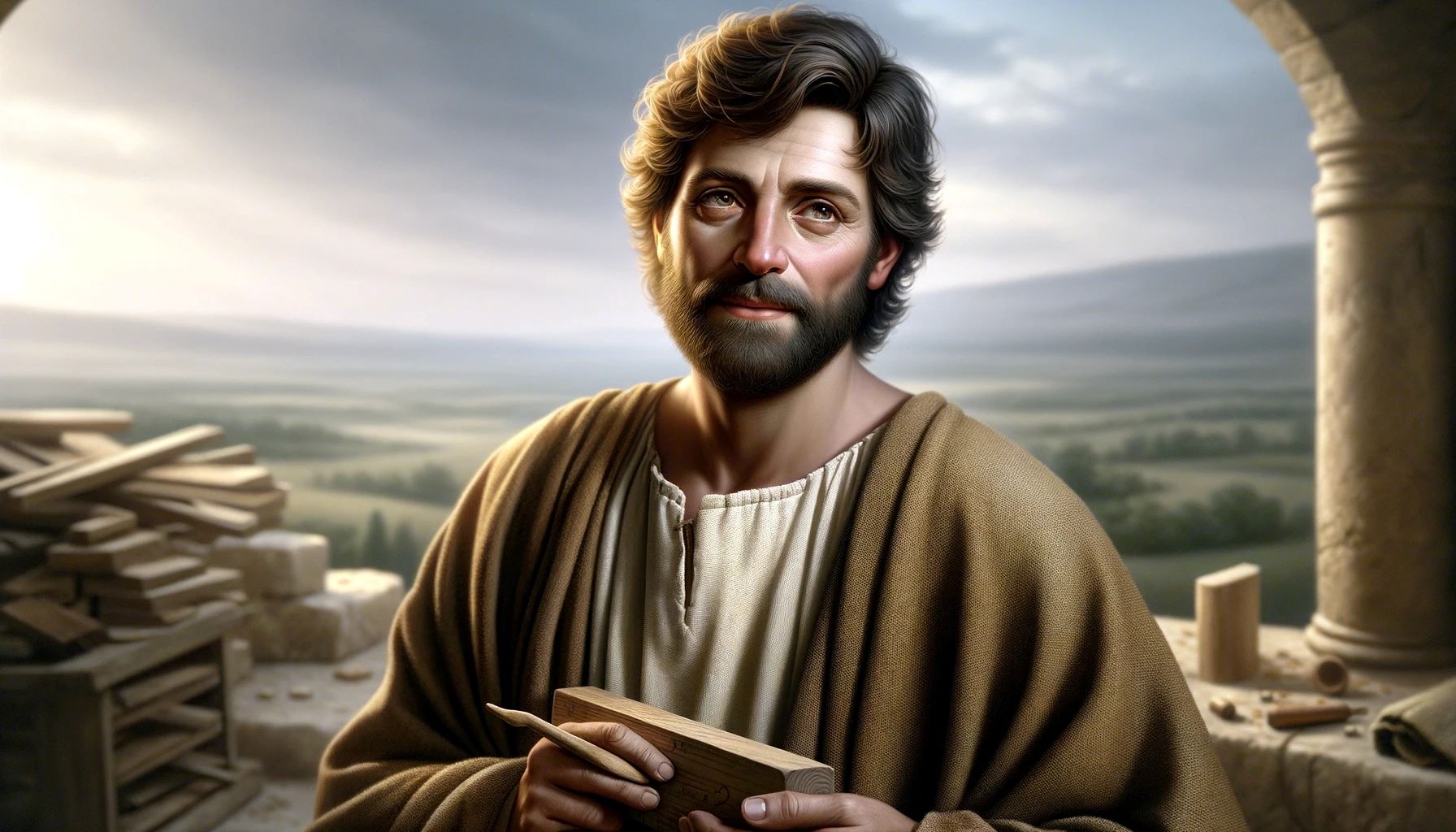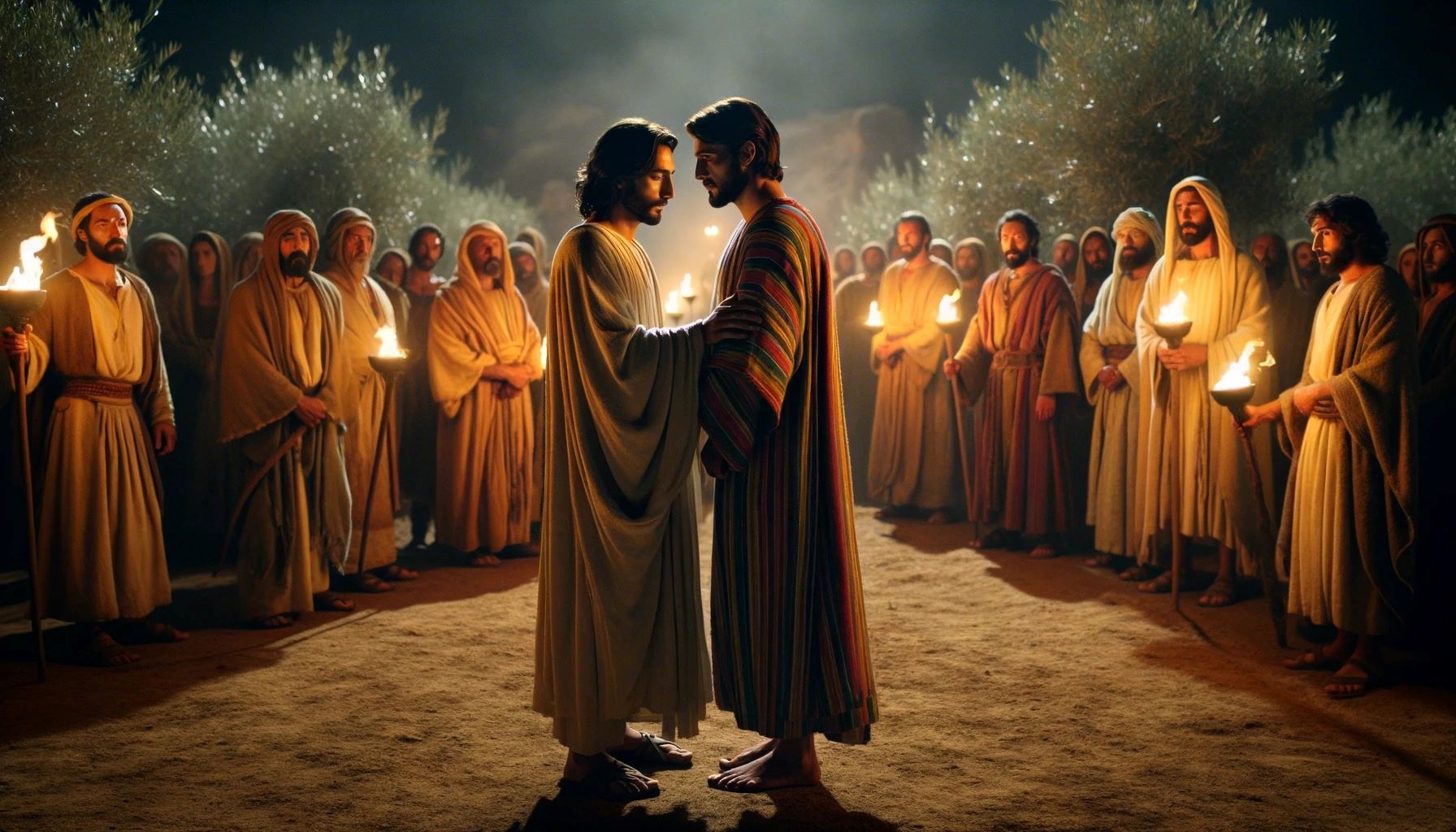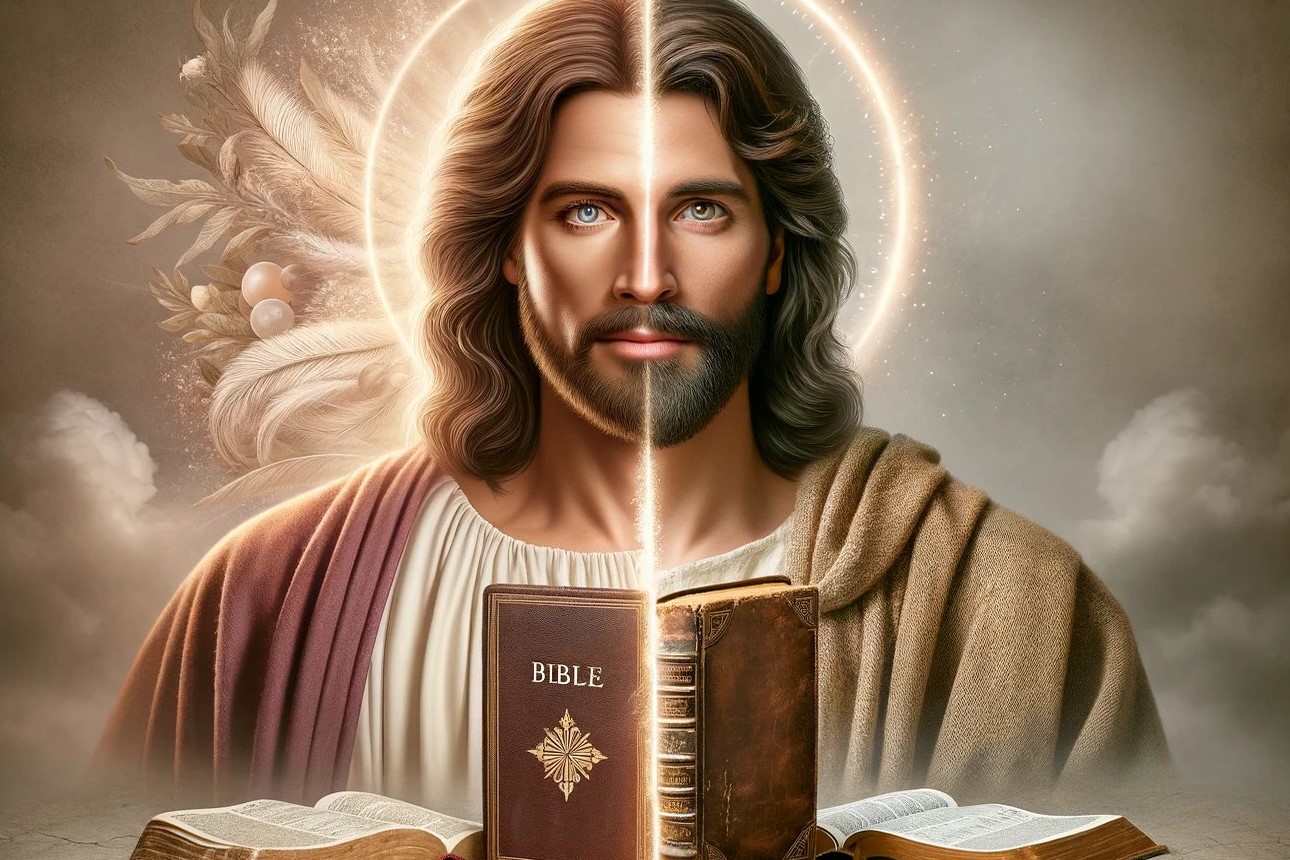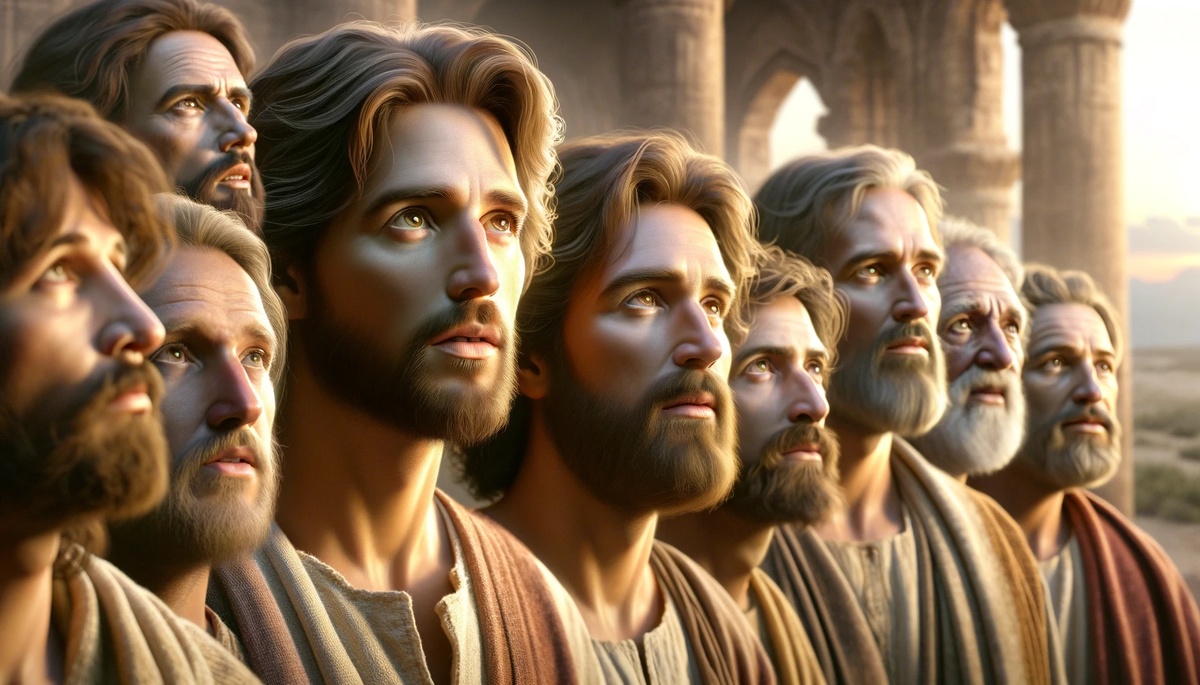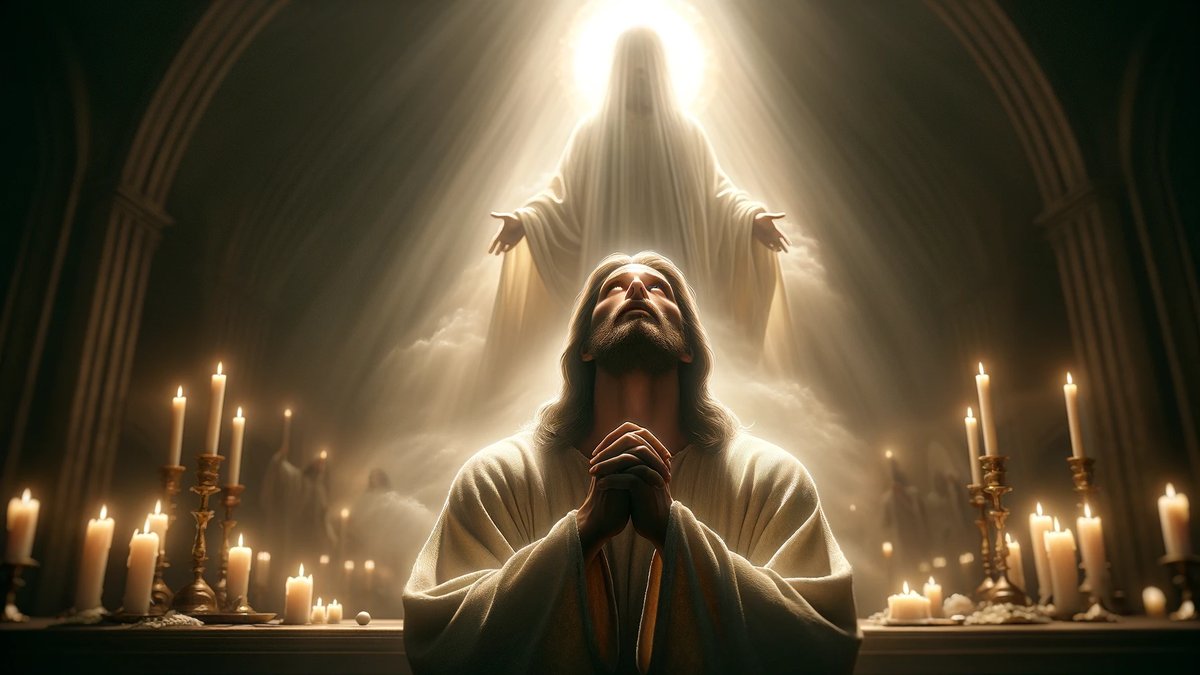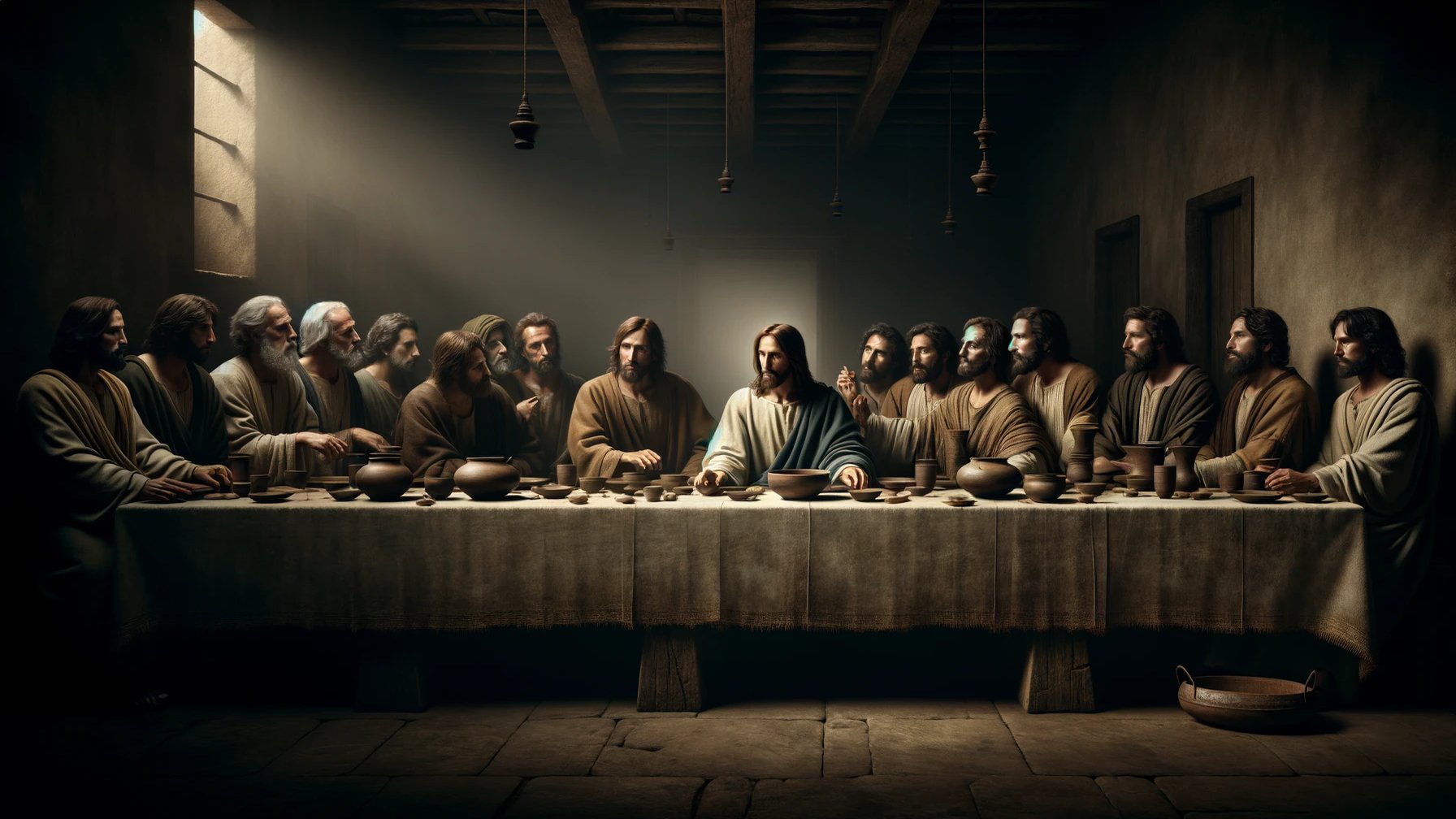Home>Christian Videos>Bible Stories>Who Is The Grandmother Of Jesus Christ


Bible Stories
Who Is The Grandmother Of Jesus Christ
Published: March 2, 2024
Jason DeRose, Managing Editor at Christian.net, uses his expertise in religion and journalism to deepen understanding of faith's societal impacts. His editorial leadership, coupled with a strong academic background, enriches the platform’s diverse content, earning him recognition in both journalism and religious circles.
Discover the story of the grandmother of Jesus Christ and her role in the Bible. Explore the significance of her character in the context of biblical narratives and teachings. Gain insight into the lineage and heritage of Jesus.
(Many of the links in this article redirect to a specific reviewed product. Your purchase of these products through affiliate links helps to generate commission for Christian.net, at no extra cost. Learn more)
Table of Contents
Introduction
Who is the grandmother of Jesus Christ? This question delves into the ancestry and lineage of one of the most influential figures in religious history. The grandmother of Jesus Christ holds a significant place in Christian tradition and historical context. Exploring her role and legacy provides insight into the rich tapestry of beliefs and stories that have shaped the Christian faith over the centuries. In this article, we will delve into the ancestry of Jesus Christ, the role of Mary's mother in Christian tradition, the historical context of Jesus' grandmother, and the lasting legacy she has left behind.
Read more: Who Is Jesus Christ’s Mother
The Ancestry of Jesus Christ
The ancestry of Jesus Christ is traced back through the genealogy presented in the Gospels of Matthew and Luke. Both accounts provide a lineage that connects Jesus to King David, the great king of Israel. According to the Gospel of Matthew, Jesus is a descendant of David through his father, Joseph. The genealogy in Matthew's Gospel emphasizes the royal lineage of Jesus, highlighting his connection to the Davidic line and presenting him as the long-awaited Messiah. On the other hand, the Gospel of Luke traces Jesus' ancestry through his mother, Mary, and emphasizes his connection to the broader human family. Both genealogies serve to situate Jesus within the historical and religious context of the Jewish people, affirming his place as the fulfillment of ancient prophecies and promises.
The genealogies of Jesus Christ not only establish his connection to the lineage of King David but also highlight the diverse and complex heritage from which he emerged. The inclusion of women in the genealogies, such as Tamar, Rahab, Ruth, and Bathsheba, challenges traditional expectations and underscores the inclusive nature of Jesus' ancestry. These women, often overlooked in ancient genealogical records, play significant roles in the biblical narrative and contribute to the rich tapestry of Jesus' lineage. Their presence serves as a reminder of the diverse and sometimes unexpected ways in which God works through human history, embracing individuals from all walks of life and backgrounds.
The genealogies of Jesus Christ not only serve as a historical record but also carry theological significance. They affirm Jesus' connection to the promises and covenants of the Old Testament, grounding his identity and mission in the broader story of God's redemptive work in the world. By tracing his lineage through generations of faithful and flawed individuals, the genealogies of Jesus Christ convey a message of hope and redemption, emphasizing the continuity of God's plan across the ages. Through these ancestral lines, Jesus embodies the culmination of God's promises and the embodiment of divine grace within the human experience.
The Role of Mary's Mother in Christian Tradition
-
Mary's mother, Saint Anne, holds a revered position in Christian tradition as the grandmother of Jesus Christ. Although her name is not mentioned in the canonical Gospels, early Christian writings and apocryphal texts, such as the Protoevangelium of James, depict her as a central figure in the life of Mary and, by extension, in the story of Jesus.
-
In Christian tradition, Saint Anne is venerated as the mother of the Virgin Mary, making her the grandmother of Jesus. Her significance extends beyond her familial relationship, as she is often portrayed as a woman of deep faith and devotion. Saint Anne is revered for her role in nurturing Mary and for instilling in her the virtues that would prepare her to become the mother of Jesus.
-
The veneration of Saint Anne is particularly prominent in the Catholic Church, where she is regarded as the patroness of mothers, grandmothers, and women in labor. Devotion to Saint Anne has inspired numerous prayers, devotional practices, and pilgrimage sites dedicated to her honor.
-
The significance of Saint Anne in Christian tradition extends to various cultural and artistic representations. Throughout history, she has been depicted in paintings, sculptures, and religious iconography, often alongside her daughter, Mary, and her grandson, Jesus. These artistic expressions serve to emphasize her role as a pivotal figure in the narrative of Jesus' birth and upbringing.
-
The role of Saint Anne in Christian tradition underscores the importance of familial and intergenerational relationships within the faith. Her portrayal as a woman of faith and virtue serves as a model for Christian believers, highlighting the impact of maternal influence and the power of generational legacy. In honoring Saint Anne, Christians recognize the integral role of family in the unfolding of God's redemptive plan and the transmission of spiritual values from one generation to the next.
The Historical Context of Jesus' Grandmother
The historical context surrounding Jesus' grandmother, Saint Anne, provides valuable insights into the religious, social, and cultural milieu of the time. During the period in which Saint Anne is believed to have lived, the Jewish people were under Roman occupation, and the practice of their faith was deeply intertwined with their national identity. The role of women in ancient Jewish society was significant, yet often overlooked in historical records. Women like Saint Anne played crucial roles in shaping the religious and spiritual upbringing of their children and grandchildren, contributing to the transmission of faith and tradition within the family unit.
In the context of first-century Judaism, the concept of lineage and ancestry held profound significance. The preservation of genealogies and the tracing of one's heritage were integral to understanding one's place within the broader community and religious narrative. As the grandmother of Jesus, Saint Anne would have been regarded as a custodian of her family's lineage, responsible for passing down the stories, customs, and beliefs that defined their identity. Her influence on Mary, the mother of Jesus, would have been instrumental in shaping the religious upbringing and values that Jesus would later embody and teach.
Furthermore, the historical context of Jesus' grandmother intersects with the broader narrative of salvation history. The belief in the coming of a Messiah, rooted in the promises of the Hebrew Scriptures, permeated the Jewish consciousness during this period. Saint Anne, as a devout Jewish woman, would have been immersed in the anticipation and longing for the fulfillment of these messianic promises. Her role as the grandmother of Jesus situates her within the unfolding drama of God's redemptive plan, as she becomes a part of the lineage from which the long-awaited Messiah would emerge.
The historical context of Jesus' grandmother also reflects the universal themes of motherhood, faith, and the enduring legacy of familial relationships. Saint Anne's presence in the narrative of Jesus' life serves as a reminder of the often unseen yet profound influence of grandmothers and matriarchs in shaping the spiritual and moral fabric of their descendants. Her historical context illuminates the interconnectedness of personal faith, family dynamics, and the broader religious landscape of the time, offering a glimpse into the intricate tapestry of beliefs and traditions that surrounded the birth of Jesus Christ.
In summary, the historical context of Jesus' grandmother, Saint Anne, provides a window into the religious, social, and cultural dynamics of first-century Judaism. Her role as a custodian of familial lineage, her participation in the messianic hopes of her people, and her influence on the upbringing of Mary and, by extension, Jesus, all contribute to a deeper understanding of the historical context in which the story of Jesus' birth unfolds. Saint Anne's place within this historical tapestry underscores the enduring significance of familial relationships and the profound impact of maternal figures in the transmission of faith and tradition.
The Legacy of Jesus' Grandmother
-
The legacy of Jesus' grandmother, Saint Anne, reverberates through the annals of Christian tradition, leaving an indelible imprint on the faith and devotion of believers across the centuries. Her role as the maternal ancestor of Jesus and the mother of Mary has contributed to a rich tapestry of veneration, cultural expressions, and spiritual significance that endures to this day.
-
Saint Anne's legacy is intertwined with the enduring devotion and reverence accorded to her in various Christian denominations, particularly within the Catholic Church. As the patroness of mothers, grandmothers, and women in labor, her intercessory role in the lives of individuals and families has fostered a deep sense of connection and reliance on her maternal care and guidance.
-
The legacy of Saint Anne extends beyond her familial ties to Jesus and Mary, encompassing her portrayal as a woman of faith, virtue, and maternal influence. Her example serves as a source of inspiration for believers, highlighting the transformative power of familial relationships and the profound impact of generational legacy in shaping the spiritual identity of individuals and communities.
-
Throughout history, Saint Anne's legacy has been perpetuated through artistic representations, devotional practices, and pilgrimage sites dedicated to her honor. The artistic depictions of Saint Anne, often depicted alongside Mary and Jesus, serve as visual reminders of her pivotal role in the narrative of Jesus' birth and upbringing, perpetuating her legacy through the enduring medium of art and iconography.
-
The legacy of Jesus' grandmother, Saint Anne, transcends time and cultural boundaries, resonating with the universal themes of maternal influence, familial devotion, and the transmission of faith from one generation to the next. Her enduring legacy continues to inspire devotion, reflection, and spiritual contemplation, serving as a testament to the profound impact of maternal figures in the narrative of salvation history and the ongoing journey of faith for believers around the world.
